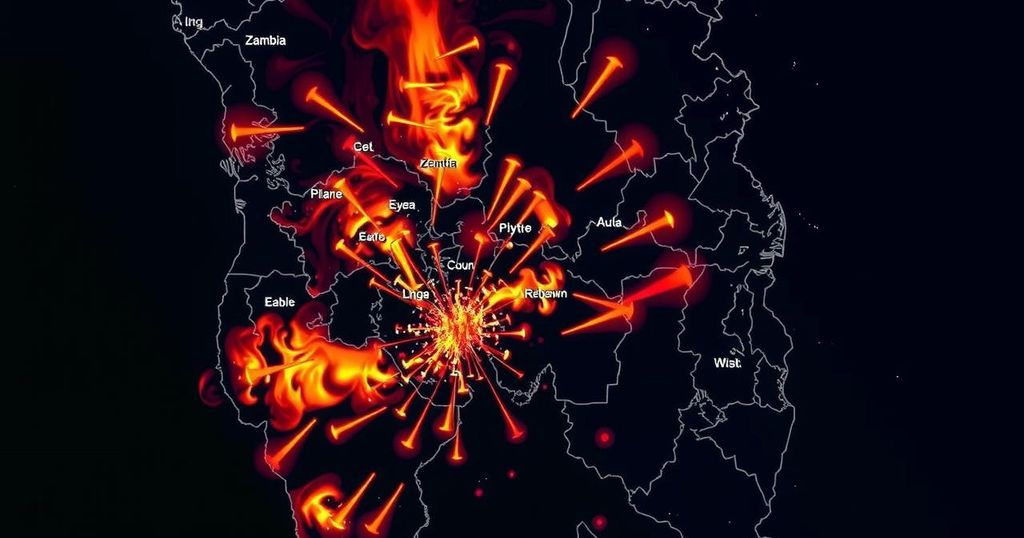Zambia and Zimbabwe Experience Nationwide Blackouts Amid Ongoing Energy Crisis
Zambia and Zimbabwe faced nationwide blackouts on Sunday evening due to power outages linked to low water levels at the Kariba Dam. Investigations into the outages are under way, with both nations suffering from limited power supply amidst drought conditions, leading many to consider solar energy alternatives.
Recently, both Zambia and Zimbabwe experienced nationwide blackouts following a significant power outage on Sunday evening. Reports indicate that the power cut affected both nations simultaneously, as they had been struggling with limited electricity supply due to drought conditions impacting the Kariba Dam, their primary hydropower source. The situation unfolded around 8:15 PM in Zambia, with immediate restoration efforts initiated, particularly at the University Teaching Hospital where backup systems were functioning effectively.
Investigations are ongoing to determine the precise cause of this widespread blackout, with technical teams from both countries actively working to prevent similar occurrences in the future. In Zimbabwe, the local power company confirmed that the national grid experienced a system disturbance. Though the outage severely impacted daily operations, restoration efforts resulted in the majority of load centers resuming functionality by the following morning, offering some relief amidst the ongoing energy crisis.
As both nations continue to grapple with insufficient power supply—averaging merely seven hours of electricity per day—many individuals are increasingly resorting to alternative energy sources, chiefly solar power, to mitigate the disruptive effects of these outages. According to the Zambezi River Authority, the water level available for power generation at the Kariba Dam was observed at only 2.40 percent as of November 18, significantly underscoring the urgent need for long-term solutions to the ongoing energy supply challenges.
Zambia and Zimbabwe rely heavily on the Kariba Dam for their hydropower needs. However, prolonged drought conditions have led to critically low water levels, severely limiting electricity generation capacity. This electricity crisis has caused widespread disruptions, prompting governments and citizens alike to seek alternative energy solutions. As the situation evolves, authorities are working diligently to address the immediate challenges while exploring sustainable strategies for energy supply stability.
The recent nationwide blackouts in Zambia and Zimbabwe highlight the acute energy crisis exacerbated by drought conditions affecting the Kariba Dam. With significant portions of the population relying on limited daily electricity and many turning to solar power as an alternative, this incident serves as a critical reminder of the urgent need for effective management of energy resources and infrastructure in the region. Ongoing investigations aim to prevent such widespread power outages in the future.
Original Source: www.barrons.com




Post Comment